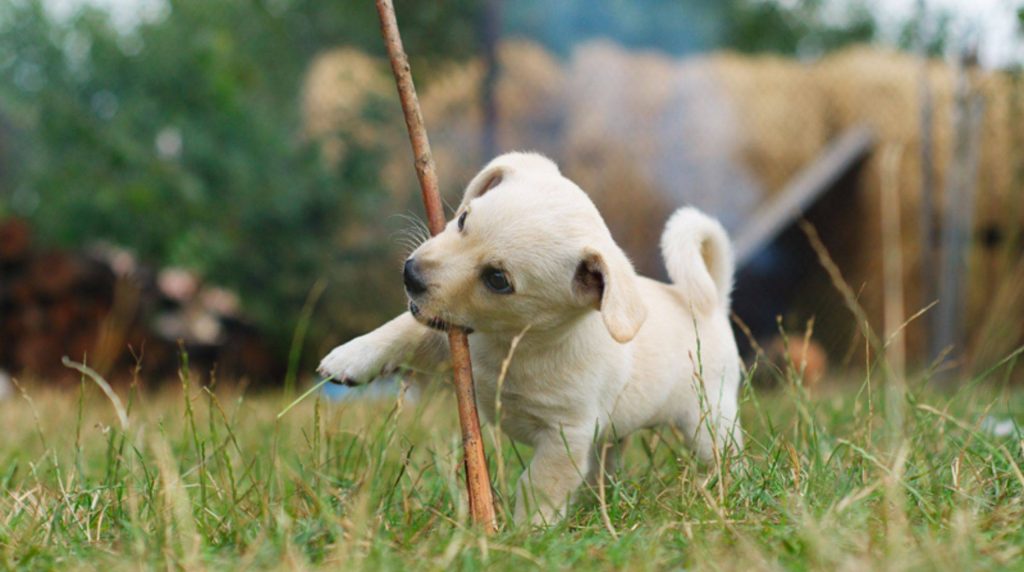It’s tempting to be a little less strict when training a puppy than an adult dog. The tiny cold-nose cats need to learn the basic rules from the start that will be expected of them when they grow up. Therefore, you should avoid the following six mistakes when training and living with your puppy.

“What Hans doesn’t learn, Hans never learns again” is a proverb that refers to human children and applies to puppy training. What you don’t teach your puppies from the start, you’ll have to diligently catch up on later – if the mistakes in the upbringing can be reversed entirely at all.
1st mistake: Puppy training starts too late
Let your puppy get away with too much because he looks so cute with his faithful eyes; teach him the wrong rules. As an adult, your dog does not understand why he is suddenly allowed on the couch or bed, should no longer jump at people, and no longer get leftovers from the table when he was qualified as a cute puppy. Once parenting mistakes have crept in and become established, they are difficult to rectify. It is easier for you and your dog if you start training the puppies as soon as your little furry friend arrives at their new home and establish firm, clear rules right away.
- Mistake: Too much freedom, too few rules
Your puppy will need to learn what to do and what not to do, and to do that, it needs routine, clarity, and guidance. If he is allowed to move around the house as he pleases, play with whatever he finds, and always have food available, he will become high-spirited. It may still seem cheeky and cute to a small puppy when it turns the house upside down, sacrifices everything to its “destructiveness,” and constantly demands attention. Most people find it annoying when the four-legged friend does not behave White when it comes to adult dogs.
Discuss what your furry friend is allowed and not allowed to do with your family members or roommates. You must follow all of these rules consistently and teach them to the puppy. Basic commands such as “sit,” “down,” “no,” or “heel” can and should be practiced with your puppy.
3rd mistake: impatience during training
However, puppy training is also a mistake to overwhelm the little rascal. It will take time, consistency, and understanding to teach your puppy everything they need to know. Be patient and divide the training sessions into small “portions.” Avoid repeating a command in a row. If instead of “No,” you say something like “No. No! Na-hein!” say, your four-legged friend does not understand that the actual command is “no.” Wait a moment to see if your puppy understands what to do. If it doesn’t behave the way you want, take a few more steps, let it come to you, and try the command again. If he follows the instructions, he gets a reward.
- Mistake: Inappropriate punishments in puppy training
“Don’t let anything get away with it” doesn’t mean you have to use harsh punishments in puppy training. Violence is taboo, but sentences do not always make sense in other ways. The timing has to be right – scold your pup for peeing on the carpet at some point during the day while you were away; he doesn’t know why you are doing it. If you catch him red-handed, you can hit him with a “No!” rebuke and take him outside. On the other hand, digging your dog’s nose into its droppings is counterproductive. Punishments that are too brutal or not time-related will make your dog feel insecure and, in the worst case, afraid of you.
- Mistake: Insufficient socialization and too few stimuli
Reputable dog breeders usually give up their puppies between eight and 12 weeks. The puppies are still in the socialization phase and are particularly receptive to rules that affect living with people and other animals. If you don’t expose your pup to enough external stimuli during this time, it may show behavioral problems later or react overly anxious because it doesn’t yet know so much.
Register your little brat with the puppy playgroup as soon as possible, get him used to grooming, the typical household noises of vacuum cleaners and the like, and strangers right from the start. Play with him regularly and go out with him from time to time. Then he doesn’t have to worry about it later.
Mistake 6: Leading by lousy example
You don’t always make mistakes consciously, but sometimes by mistake or because you think you mean well. But if you comfort your puppy, for example, when he is scared of another dog or human, it will not make him feel any better. He thinks he’s justifiably scared when his mistress or master reacts very excitedly. In addition, he is rewarded for a reaction that is unnecessary and undesirable. When it comes to puppy training, resist the temptation to overprotect your baby dog. Remain calm, confident, and clear; then, your four-legged friend will know that he has nothing to fear and that there is no reason to get excited.










